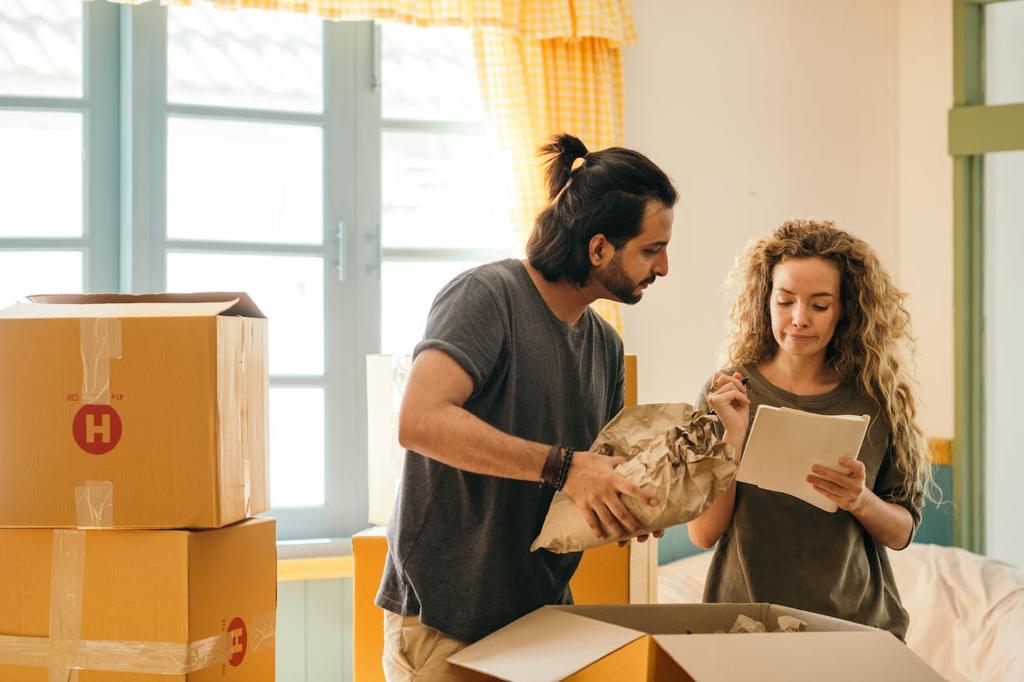Relocating to a new home brings both excitement and stress. Amidst the whirlwind of packing, arranging, and transporting your possessions, safeguarding their safety and security becomes of utmost importance. Regardless of whether you are moving within the same town or to a different state, these six tips will help you ensure the protection of your belongings and streamline your moving process.
1. Begin with a Thorough Inventory
Before commencing the packing process, it’s crucial to meticulously create a comprehensive inventory of all your possessions. This inventory serves as a vital roadmap to ensure that every item is accounted for throughout the entire moving process.
Categorize your belongings by their type or the room they belong to, and assign each item a distinctive label or identifier to facilitate effortless identification. For a more technologically advanced approach, explore the option of utilizing inventory management applications to streamline and simplify this task, making it even more efficient and accurate.
2. Invest in High-Quality Packing Materials
The quality of your packing materials is a critical component in ensuring the safety of your belongings. Opt for sturdy, double-walled moving boxes that provide structural integrity. Additionally, invest in high-grade packing paper, bubble wrap for cushioning, quality packing tape for secure sealing, and dependable markers for clear labeling.
Delicate or fragile items, in particular, should be carefully swathed in bubble wrap or packing paper and packed securely to minimize the risk of damage. Employing the right packing materials not only safeguards your possessions but also adds an essential layer of protection, safeguarding them from potential harm during the move.
3. Streamline and Organize
Relocating offers an ideal opportunity to declutter and downsize your possessions, which can have numerous benefits. By carefully assessing your belongings and making decisions about what to keep, sell, donate, or discard, you not only reduce the sheer volume of items to be moved but also simplify the entire packing and unpacking process.
Additionally, keeping similar items grouped, such as kitchenware or clothing, fosters efficient organization in your new living space, making it easier to settle into your new home seamlessly and swiftly. Adopting this considerate strategy can result in time and effort savings, optimizing the utilization of space in your new home and facilitating a more seamless transition.
4. Safeguard Valuables Separately
Valuables such as vital documents, jewelry, and sentimental items should not be mingled with your regular household possessions. These items hold immense personal and financial value and require extra care. Whenever feasible, personally transporting them in your vehicle is the safest choice, as it keeps them under your direct supervision.
However, in instances where personal transport is not an option, make sure to secure these items meticulously and label them conspicuously as “valuables” to draw heightened awareness during the entire moving process. This added precaution minimizes the risk of loss or damage to these irreplaceable treasures.
5. Choose Reputable Movers
When selecting professional movers, As an example, for car shipping, it is imperative to opt for a moving company with a strong reputation to ensure the safety of your car. Taking the time to thoroughly review customer feedback ratings and seeking recommendations from trusted friends and family, as well as rigorously verifying the company’s qualifications, is crucial.
A reputable moving company not only handles your possessions with care but also offers comprehensive insurance coverage, providing an extra layer of protection in case of unexpected incidents during the move. This careful and thorough selection process significantly enhances the smooth and secure transfer of your possessions to your new residence.
6. Consider Insurance
Even with the most meticulous planning and professional movers, accidents can occur during a move. For added peace of mind, contemplate obtaining moving Insurance. Most moving companies offer basic Insurance, but exploring supplementary coverage options is advisable, especially if you possess high-value items.
Insurance serves as a safeguard to help recover the costs associated with damaged or lost items in the rare event of an accident. This financial protection can significantly reduce the stress and financial burden that unexpected mishaps may bring, allowing you to focus on settling into your new home with confidence.
Conclusion
Securing your belongings during a move is a pivotal step in the relocation process. Initiating this process with a comprehensive inventory, employing top-notch packing supplies, decluttering, isolating valuables, engaging reputable movers, and exploring insurance options are all essential strategies to ensure the well-being and protection of your possessions during the transition. With prudent preparation and due diligence, you can embark on your move with assurance and peace of mind.
Author


